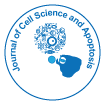Impact of Ambient Particulate Matter on the DNA Methylation of Asthma-related Genes in Bronchial Epithelial Cells
Received: 30-Mar-2017 / Accepted Date: 02-Apr-2017 / Published Date: 08-Apr-2017
76865A recent report by the International Energy Agency suggests that “air pollution is a major public health crisis leading to around 6.5 million deaths each year.” Despite efforts to curtail pollution levels, the burden of air pollution to public health continues to rise due to an increase in global industrialization. Pollution is made of many toxic components that contribute to disease. Particulate matter (PM) is of particular concern because of its ability to trigger inflammation through reactive oxygen species (ROS) and polyaromatic hydrocarbons (PAH). PM is classified by its size (e.g. 10] or respiratory tract [1]. Although ample epidemiologic data demonstrate that PM levels contribute to asthma exacerbations, the mechanism by which this occurs is not fully understood [2,3].
Previous studies have demonstrated that PM exposure trigger airway inflammation, production of inflammatory cytokines and damage the respiratory functions [4-9]. Bronchial epithelial cells (BECs) line the airway and are the first cell type in the lung to react with PM [10]. High levels of PM inhibit growth and trigger cell death in BECs, while moderate doses of PM trigger the expression of many inflammatory genes. Whether lower doses or chronic exposure to PM affects the expression of these genes or other genes important in the asthma pathway is unclear [11-13]. Moreover, PM exposures has been associated to the pathogenesis of asthma. The development of asthma is associated with DNA methylation changes, and epigenetic changes represent an important mechanistic link connecting environmental exposure to changes in gene expression profile. Studies have shown that exposure to air pollution results in global DNA methylation changes in blood samples from humans [9,14,15], However, the molecular mechanism for PM -induced changes in DNA methylation on cells directly related in the development of risk of asthma has not been studied in detail.
Air pollution has been demonstrated to cause DNA methylation changes, most notably in whole blood samples and circulating T cells. Most of these studies have identified these changes to occur in transposable elements (such as long interspersed nuclear elements-1 and Alu) or in specific candidate genes such as forkhead box protein 3 and IFN-γ. However, epigenetic responses to pollution may vary depending on cell type, and how PM affects DNA methylation levels in other cell types has not been well studied [16-21]. Therefore, studying specific cell lines that is directly related to risk of disease development will help to determine right mechanisms.
PM is composed of a mixture of organic molecules, including PAH, metals, and minerals that have potentially multiple mechanisms of action. Most notably, PM has been implicated in causing oxidative stress through the generation of reactive oxygen species (ROS) [22-24]. This can lead to upregulation of redox-sensitive mitogen-activated phosphokinases and activation of transcription factors such as nuclear factor(NF)-κB within cell nuclei. In addition, PAH may directly induce changes within a cell through signaling of its canonical receptor, the aryl hydrocarbon receptor (AhR). AhR is a ligand-activated nuclear receptor and transcription factor. Upon ligation with PAH, the receptor translocates from the cytosol to the nucleus where it activates expression of cytochrome P450 enzymes, such as CY1P1A1. However, it is also known to activate a variety of other genes involved in cell differentiation and inflammatory cytokine production. Expression of AhR is increased in BECs [12]. Whether ROS and AhR signaling are capable of inducing DNA methylation changes is unknown.
Thus, further goal should be to utilize using different molecular biology approaches to interrogate 1) how PM affects the expression of genes, 2) what DNA methylation changes are induced after varying exposure to PM, and 3) the mechanisms by which PM induces DNA methylation changes.
Knowledge on these objectives will demonstrate how PM affects the DNA methylation and expression of genes in the cell lines specific for asthma pathogenesis, and elucidate operative mechanisms by which these changes occur. Recognizing the signaling pathways that allow PM to induce DNA methylation changes may reveal insights into how epigenetic patterns are altered by the environment.
References
- Li N, Xia T, Nel AE (2008) The role of oxidative stress in ambient particulate matter-induced lung diseases and its implications in the toxicity of engineered nanoparticles. Free RadicBiol Med 44: 1689-1699.
Citation: Tripathi P (2017) Impact of Ambient Particulate Matter on the DNA Methylation of Asthma-related Genes in Bronchial Epithelial Cells. J Cell Sci Apo 1: 108.
Copyright: ©2017 Tripathi P. This is an open-access article distributed under the terms of the Creative Commons Attribution License, which permits unrestricted use, distribution, and reproduction in any medium, provided the original author and source are credited.
Share This Article
������ Journals
Article Usage
- Total views: 4021
- [From(publication date): 0-2017 - Nov 22, 2024]
- Breakdown by view type
- HTML page views: 3194
- PDF downloads: 827
